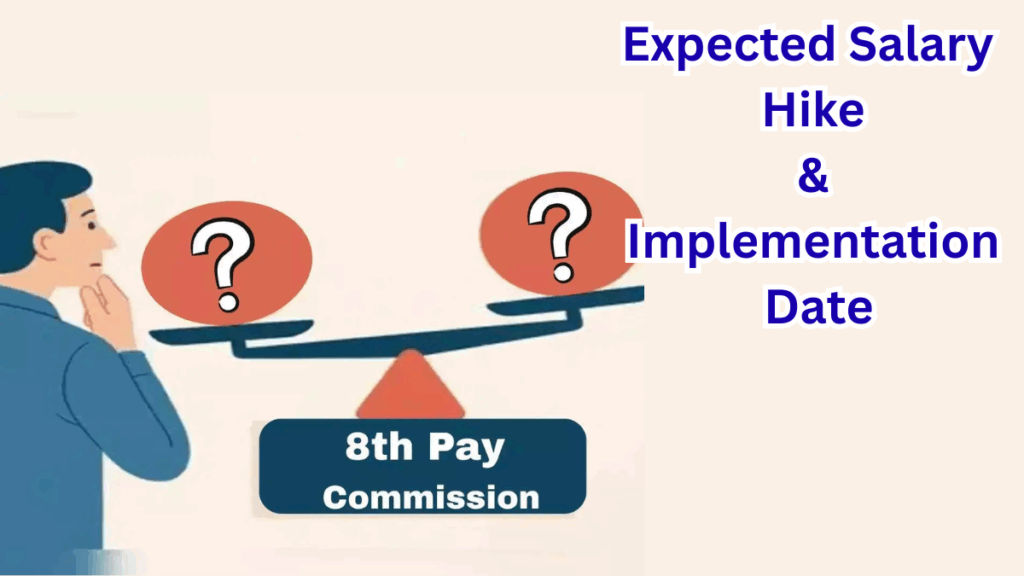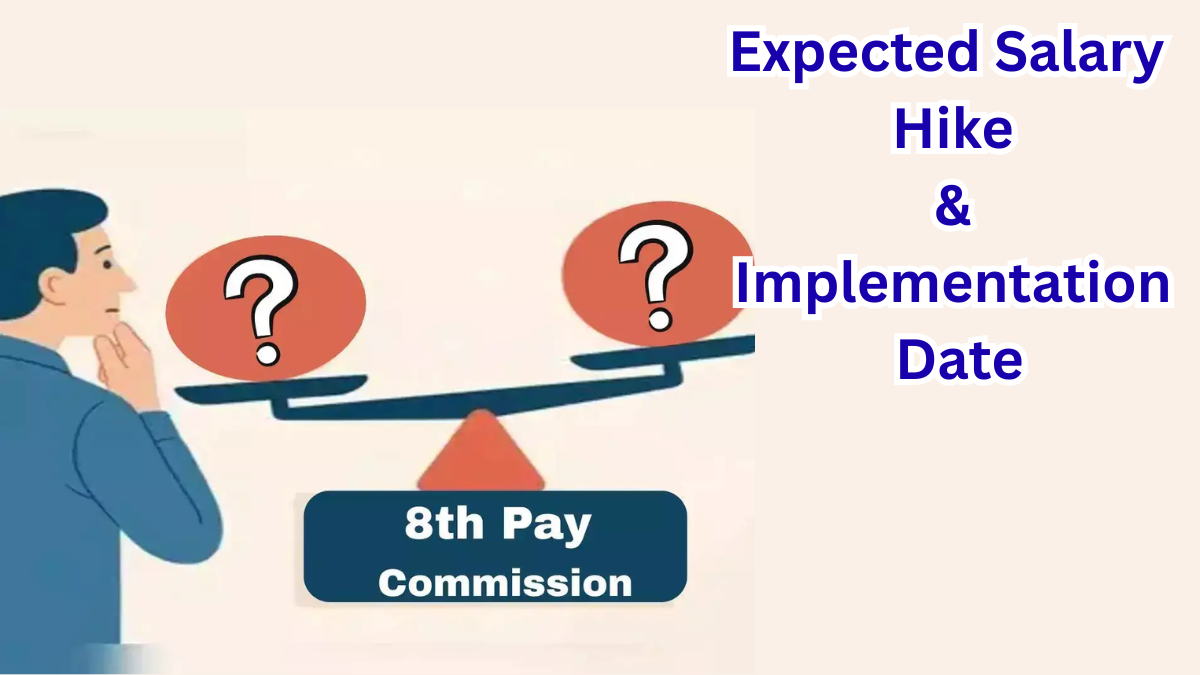The 8th Pay Commission India 2025 has become one of the most anticipated developments for central government employees. With rising inflation and increasing demands for better living standards, the upcoming pay commission is expected to bring a fresh wave of relief through salary revision for govt employees and a possible pay matrix update.
Let’s break down everything you need to know about the implementation timeline, salary hike expectations, and what employees can look forward to.

What is the 8th Pay Commission?
The Pay Commission is set up every 10 years by the Government of India to revise the salary structure, allowances, and pensions of central government employees.
-
The 7th Pay Commission was implemented in 2016.
-
The 8th Pay Commission India 2025 is expected to be formed soon, with recommendations likely to roll out around January 2026.
This move aims to ensure that employees’ pay keeps pace with inflation, cost of living, and overall economic changes.
Expected Salary Hike
One of the biggest questions among government employees is: How much salary hike will the 8th Pay Commission bring?
-
Experts suggest a 30–35% hike in basic pay.
-
The minimum pay may rise from ₹18,000 to around ₹26,000 per month.
-
The fitment factor, which is currently 2.57 under the 7th Pay Commission, is expected to be revised to 3.68 under the 8th Pay Commission.
Pay Matrix Update – What to Expect?
The pay matrix update will restructure how salary levels are calculated across different grades. This directly impacts the salary, allowances, and pension benefits.
Expected Changes in Pay Matrix
| Component | 7th Pay Commission | Expected 8th Pay Commission |
|---|---|---|
| Minimum Pay | ₹18,000 | ₹26,000 (proposed) |
| Fitment Factor | 2.57 | 3.68 (likely) |
| Average Hike in Basic Pay | 23–24% | 30–35% |
| Implementation Date | Jan 2016 | Jan 2026 (expected) |
Implementation Timeline
The government usually constitutes the pay commission around 2 years before its actual implementation.
-
2025: 8th Pay Commission India 2025 may be officially set up.
-
2026: Recommendations could be implemented from 1st January 2026.
-
2027 onward: Revised salaries and pensions fully rolled out across all departments.
Why is the 8th Pay Commission Important?
For nearly 50 lakh central government employees and over 60 lakh pensioners, the commission brings financial stability and improved living standards.
Key benefits include:
-
Higher disposable income
-
Increased pension benefits
-
Better allowances linked to inflation
-
Motivation and job satisfaction among govt employees
FAQs on 8th Pay Commission India 2025
Q1. When will the 8th Pay Commission be implemented?
The implementation is expected from 1st January 2026, but the 8th Pay Commission India 2025 is likely to be formed next year.
Q2. What salary hike can govt employees expect?
Employees may see a 30–35% increase in basic pay, with the minimum salary expected to rise from ₹18,000 to ₹26,000.
Q3. What will be the new fitment factor under the 8th Pay Commission?
The fitment factor is expected to increase from 2.57 to 3.68, which will directly impact the salary revision for govt employees.
Q4. Will pensions also be revised under the 8th Pay Commission?
Yes, pensioners will benefit from the pay matrix update, ensuring higher pensions aligned with revised pay structures.
Click here to learn more
